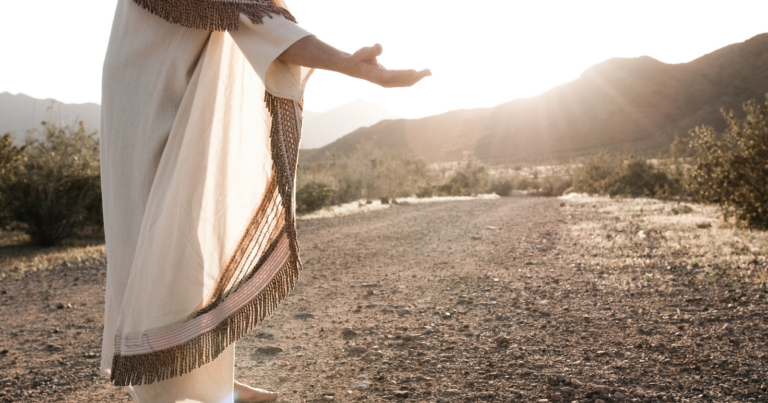“God blessed them and said to them, “Be fruitful and increase in number; fill the earth and subdue it. Rule over the fish in the sea and the birds in the sky and over every living creature that moves on the ground.”
Genesis 1:28
In the biblical account of Genesis, God’s creation of man and woman serves as the foundation of human existence.
This divine narrative captures the essence of mankind’s origin and shows us its relevance in today’s world.
Crafted in the image of God, Genesis reveals the divine intention behind our creation, marking us with dignity and purpose.
This guide delves into the heart of Genesis, illuminating how God intricately formed man from the earth and breathed life into him, and how woman was created to complete this unique partnership.
It’s a tale that invites us to ponder our origins, our connection to the divine, and the responsibility we carry as stewards of creation.
Let’s uncover the layers of meaning in this foundational story and reflect on its impact on our identity and relationships today.
Divine design of creation
The creation story in Genesis reveals a God unique from other ancient beliefs, emphasizing there is one God who loves and cares for humanity.
This God, active in the world’s history, desires a relationship with us, based on trust, obedience, and worship.
Unlike other stories of the time, Genesis shows God creating a world that is good and making people in His image.
This foundational passage underscores the equality, interdependence, and distinct roles of both genders. It shapes the understanding of identity, relationships, and societal structures from a biblical perspective.
The New Testament, especially through Jesus’ teachings, expands on this, introducing the concept of the Holy Trinity and showing God as a loving Father.
This story isn’t just about the beginning of the world. It’s also about God’s ongoing relationship with humanity, inviting us to live in harmony with Him and the creation.
Key themes of Genesis explored
1) The image of God
Genesis introduces a profound notion: humans are created in God’s image.
This concept goes beyond physical resemblance and suggets that our ability to think, love, and choose right from wrong mirrors aspects of the divine.
Being made “in His image” (Gen. 1:26-27) implies a special status and responsibility.
This means that we’re endowed with the ability to create, to relate, and to make ethical decisions, reflecting God’s character in our actions.
Based on this idea, we should view each person with dignity and respect, recognizing the divine spark within everyone.
It’s a reminder and a challenge to live up to this high calling in our daily interactions and decisions, valuing the sacred in ourselves and in others.
2) The breath of life
The narrative of God breathing life into Adam is a vivid illustration of human uniqueness.
This divine breath signifies more than mere life—it represents the essence of being made in God’s likeness, equipped with purpose and the capacity for creativity.
God’s intention, as outlined in Genesis, was for humans to be productive, to cultivate the earth, and to create value that impacts others positively (Gen. 1:27-28).
This directive encourages us not just to exist but to contribute meaningfully to our surroundings.
It’s a call to action, urging us to engage with the world in a way that nurtures and enhances life for ourselves and those around us.
This divine breath is a constant reminder of our potential to influence and improve the world through our thoughts, actions, and creations.
3) The creation of a woman
“Then the LORD God made a woman from the rib he had taken out of the man, and he brought her to the man.
The man said, “This is now bone of my bones and flesh of my flesh; she shall be called ‘woman,’ for she was taken out of man.”
Genesis 2:22-23
Want to know what the creation of women in Genesis reveals about modern femininity?
The narrative of woman’s creation, particularly through the unique act of God forming her from man’s side, underscores a profound connection and equality between genders.
This ancient text highlights the indispensable role of women as partners, not as afterthoughts or secondary creations, but as integral to humanity’s completeness.
What’s more, it reflects a vision of femininity that is strong, equal, and essential.
This story transcends time, suggesting that the essence of femininity carries qualities of life-giving support, relational depth, and inherent value.
In contemporary contexts, this can be a reminder of the strength found in collaboration and mutual respect.
That’s how it challenges modern views to embrace equality deeply rooted in our very creation, encouraging society to value contributions, perspectives, and leadership of women in all areas of life.
4) Human dominion and responsibility
How does Genesis define our stewardship of the earth?
Genesis bestows upon humanity a unique role: dominion over the earth.
This isn’t a carte blanche for exploitation but a call to stewardship, intertwining responsibility with authority.
We are tasked with caring for creation, ensuring its health and sustainability for future generations.
Consider the example of sustainable farming practices.
These methods reflect the Genesis mandate by enhancing soil health, conserving water, and supporting biodiversity.
They embody the principle of stewardship and demonstrate how dominion can harmonize with care and respect for the natural world.
5) “Helpmate”
The term “helpmate” described by a woman in Genesis often stirs debate.
Does it imply subordination?
On the contrary, it signifies a partnership.
The Hebrew term “ezer” translates to “helper” or “ally”, indicating a role of strength and support, not subservience.
Genesis 2:18 states, “It is not good for the man to be alone.
I will make a helper suitable for him.”
The original Hebrew word for “helper” used here, ezer, is frequently used in the Bible to describe powerful support, often in the context of God’s aid to humans.
This passage clarifies that a “helpmate” is not a subordinate but a vital, strong partner. It underscores the concept of teamwork and mutual support within relationships, elevating the idea of partnership to one of shared goals and equal value.
Through this, the biblical narrative invites a reevaluation of relationships to be based on mutual respect, support, and shared responsibility.
6) The fall’s impact
The fall in Genesis 3 tragically distorts God’s ideal for man and woman.
Sin introduces pain, conflict, and hierarchy into their relationship.
However, it also sets the stage for God’s redemptive plan through Christ, who ultimately restores unity and harmony among humanity.
What lessons do we draw from the story of the Fall, and how does it resonate with our personal journeys?
Well, Adam and Eve’s disobedience in the Garden of Eden is more than a tale of the first sin. It’s a reflection on human nature, freedom, and the consequences of our choices.
This moment marks a shift in humanity’s relationship with God, with creation, and with one another.
The Fall underscores the reality that our choices have weight, influencing not just our own lives but the world around us.
It invites introspection on how we navigate temptation, accountability, and grace in our daily lives.
As we reflect on the Fall, we’re encouraged to consider how our actions impact our relationships and the environment.
What are our gender roles today?
“God blessed them and said to them, ‘Be fruitful and increase in number; fill the earth and subdue it. Rule over the fish in the sea and the birds in the sky and over every living creature that moves on the ground.'”
Genesis 1:28
So, how do these ancient narratives shape our understanding of gender roles in today’s fast-paced, ever-evolving society?
The creation story in Genesis lays the foundation for the inherent value and dignity of every individual, male and female, created in God’s image.
But what does this mean for us now?
In a world where gender roles are increasingly fluid and subject to personal interpretation, the principles of partnership, equality, and mutual respect found in Genesis are more relevant than ever.
Imagine applying these principles to our relationships, workplaces, and communities.
The idea of being ‘helpmates’ suggests a support system built on uplifting one another, transcending traditional roles to empower each facet of life.
This perspective encourages us to foster environments where everyone’s contributions are valued, reflecting the diverse image of God.
In a nutshell, our contemporary gender roles, inspired by the Genesis account, should adapt to current realities, championing equality and respect.
Final thoughts: Embracing equality and complementarity
As we reflect on the narratives of Genesis, we uncover timeless principles that transcend the ages.
These stories invite us to embrace a world where equality and complementarity are not mutually exclusive but are intertwined in the very fabric of our existence.
They encourage us to view our differences as strengths, enriching our lives and the communities we are part of.
- Recognize the inherent value in every individual, reflecting the divine image.
- Foster environments that celebrate diversity, encouraging mutual respect and understanding.
- Collaborate as equals, leveraging our unique strengths for the common good.
Let’s be inspired by these ancient texts to build a future where everyone is valued, respected, and empowered.
By integrating these values into our daily lives, we can create a society that truly reflects the beauty of God’s creation, where every person is seen, heard, and appreciated for who they are.
Together, we can forge a path forward that honors the balance of equality and complementarity, making the world a better place for all.












